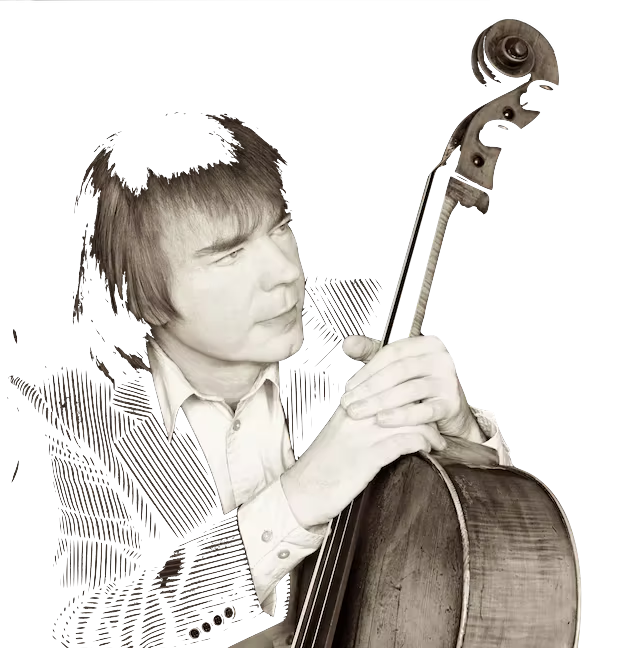Turkish Daily News 27th June 2007
Classic brilliance resonates in ancient walls – Istanbul Concert Review
Music gently winds through the corridors of the ancient Byzantine structure Hagia Eirini, at the concert, Festival Meetings II, performed by an acclaimed cellist, cello quartet and pianist
As four cellists raise their bows in the air and strike the cellos strings with utmost grace, Bach’s Air in D Major gently resonates in a former Eastern Orthodox Church, Hagia Eirini Museum (Aya lrini) at the Topkapi Palace on Monday night. As the music gently whines through the corridors of the ancient Byzantine structure and rises to the atrium, a surreal musical journey begins in an enchanting setting of history and culture that creates the perfect atmosphere for music lovers of all ages. Festival Meetings II, featuring an acclaimed cellist, Julian Lloyd Webber, cello quartet çellistanbul and pianist Pam Chowhan is part of the 35th International Istanbul Music Festival. The festival is the latest creation of a creative musician and an ensemble of musicians whose passion for classical sound resonates from their soul. Istanbul’s own cello quartet ‘çeliistanbul’, started the audience on a journey of choral harmonies. Inspired by the city Istanbul and its magical atmosphere, the group is formed of cellists who graduated from the same Conservatoire of music their repertoire includes classical as well as modern works. “I am on a Long, Narrow Road” was a special composition for the quartet based on Asik Veysel’s melody that proved to the audience they were witnessing brilliant performers.
Each cord was played in unison echoing the emotion of the music on the individual faces and swaying bodies 0r the cellists. The group was one entity playing off each other’s enthusiasm and passion. Their long composition was met with equal pleasure from the audience as each note created tension in the already thick church air. The last note in the composition is held in harmony. The audience holds its breath. Time stops. The note finishes. The stunned audience breaks the silence with loud cheers and applause.
The group also known for their works of tango and jazz finish off their set with Tango Passionata and Polonaise. The second set welcomes Julian Lloyd Webber to the stage with Pam Chowham accompanying him on the piano. He too begins with Bach’s C Major Adagio followed by Scherzetto. At first the music did not flow together.
There seemed to be tension as each performer kept looking for signs and warmth the two instruments should create. It was not until Scherzo Pizzicato that the union warmed up and put their bows aside; Webber played the cello with his fingers. Claude Debussy’s Sonata (1915) was long and stunning. Inspired with patriotic sentiments his music flowed with watery magic to dark virtuosity. It was multi-faceted brilliance that was written for the flute, piano and cello and it worked with Chowhan accompanying Webber on the piano. The night was not over yet, as ‘çellistanbul’ joined Webber on stage to perform the last three compositions. Beginning with Astor Piazzolla’s Oblivion, the groups performance highlights not only Webber’s amazing ability to take original scores and create a compelling rhythm, hut to depict character through music that shows his way of bringing life to his playing, It would not be a Webber production without performing one of his brothers most popular songs from the popular musical Jesus Christ Superstar, “I Don’t Know How to Love Him.” The audience was really alive and hoped there was more when the performance ended. The silence was extensive and finally broken with loud applause. The applause brought Webber and the ‘çellistanbul’ quartet back on stage to perform an encore of Astor Piazolla’s Oblivion. This time when the last cord was held, the audience knew once the sound reached the atrium, the performance was truly over. A standing ovation ended a magical myriad of classical ethereal sound that was performed brilliantly.
The Washington Post 18th January 1994
Julian Lloyd Webber
With more than 30 recordings to his credit, cellist Julian Lloyd Webber need never fear about living in his brother Andrew’s shadow. And while concert artists rarely win mass acclaim – and of the few that do, still fewer are cellists – Julian Lloyd Webber’s star shines brightly in that small constellation of the deserving few.
Saturday night’s performance at the Jewish Community Center in Rockville showed why this should be so. Lloyd Webber brought a fine touch and a keen intellect to all that he and pianist John Lenehan played. Architecture was always in place, and each piece on this most challenging program conveyed a sense of journey, of departure and arrival.
The sweetest moments came in the most delicate exchanges – in Bach’s “Ich stehe mit einem Fuss im Grabe”, the Prologue to the Debussy Sonata, and, not surprisingly, in the gentle unfolding of Faure’s “Elegie”. All were crafted with the greatest of care – down to the triple-piano markings – and dispatched with exact intonation.
Lloyd Webber and Lenehan evinced the skills and vision to make the music memorable even when in the case of the Rachmaninov Sonata and the Frank Bridge encore, neglect might have consigned them to a different fate. -Mark Carrington
Oxford Mail 26th June 1978
The Bach Festival Concerts – Bach Cello Suites
‘Sensational on Cello’
The Codrington Library at All Souls has the best acoustics in Oxford: a fact which has not escaped the attention of the administration of the English Bach festival, for the last 16 years promoters of the best music in Oxford. Yesterday afternoon, Lina Lalandi, the festival’s leading lady and brilliant impresario, and Julian Lloyd Webber gave a recital of Bach’s solo Suites for Harpsichord and unaccompanied cello (respectively). Intimate chamber works of this type tend to be overshadowed by events involving large numbers of performers. This, then, was a concert for the connoisseur.
Suffuce it to say that in its technical acumen and innate musicality, Julian Lloyd Webber’s account of the first two cello Suites was as sensational as anything the reviewer can recall since the start of the festival. J.D.M


